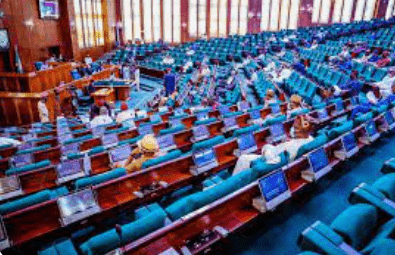The House of Representatives has launched an investigation into the utilization of a N200 billion loan disbursed by the Central Bank of Nigeria (CBN) to support the National Mass Metering Programme (NMMP), following discrepancies in figures reported by the country’s eleven Electricity Distribution Companies (DisCos).
The investigation, spearheaded by a sub-committee of the House Committee on Power, was formally inaugurated on Tuesday.
In a statement released Wednesday, the sub-committee chairman, Uchenna Harris Okonkwo, highlighted emerging concerns over the transparency and efficiency of the program’s implementation.
According to the committee’s preliminary findings, Phase 0 of the NMMP, which was originally slated to receive N59.280 billion for the procurement and installation of one million meters, only saw the release of N55.4 billion.
The amount reportedly facilitated the delivery of 962,832 meters—falling short of the initial target.
Further compounding concerns is the apparent lack of progress in the repayment of the loan. DisCos have repaid just N7.1 billion of the N55.4 billion as of 2024, with no recorded payments toward the agreed 9% interest.
“This calls for explanation as to how NESI SSL, Meristerm Wealth Management Limited, and Meristerm Securities Limited—entities tasked with managing the funds—handled the NMMP in the national interest,” Okonkwo said.
The sub-committee will also probe the stalled implementation of subsequent phases of the NMMP. Phase 1, which was to be funded by the CBN and Deposit Money Banks (DMBs) for the provision of 1.5 million meters, and Phase 2, expected to deliver four million meters with World Bank funding, have yet to materialize.
“The main objective of the committee is to investigate the disbursement and utilization of the N200 billion loan earmarked in 2020 by the CBN to provide free electricity meters to Nigerians,” Okonkwo stated.
“The lack of progress raises serious questions about accountability and fiscal responsibility.”
The NMMP, launched in 2020 by the CBN in collaboration with the Nigerian Electricity Regulatory Commission (NERC) and other stakeholders, was designed to bridge Nigeria’s metering gap, eliminate estimated billing, and improve service delivery in the power sector.
The House sub-committee comprises representatives from each of Nigeria’s six geopolitical zones and is expected to demand full disclosures from the DisCos and fund managers involved in the programme.
Lawmakers say the investigation is critical not only to safeguard public funds but to ensure that future interventions in the power sector are executed with greater efficiency and accountability.















